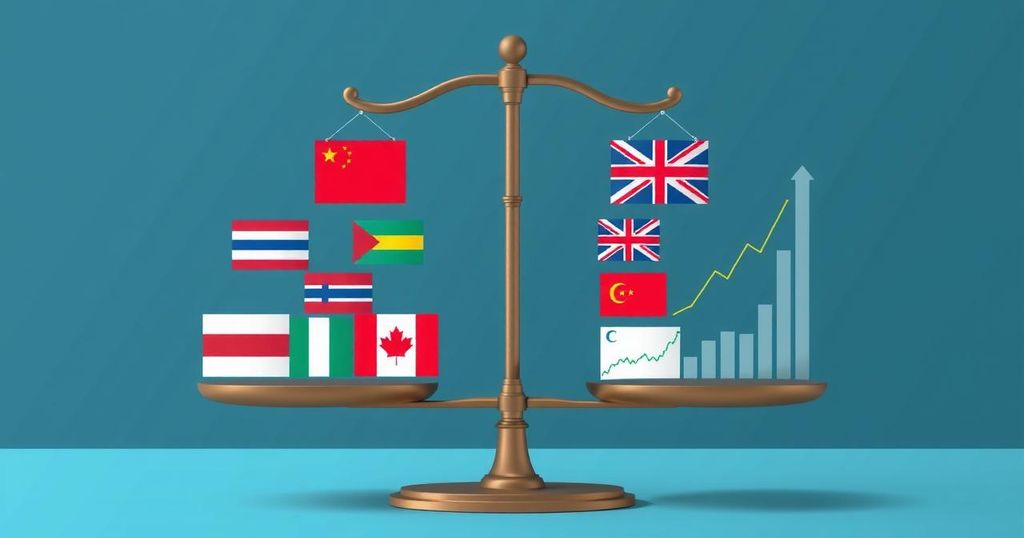Donald Trump Set to Announce Reciprocal Tariffs on ‘Liberation Day’

US President Donald Trump is set to announce reciprocal tariffs on April 2, referred to as ‘Liberation Day’. The tariffs are likely to affect various countries, particularly India, Canada, and China, with immediate implementation expected. Strategic financial measures may accompany the tariffs, as concerns about inflation and recession loom amidst heightened trade tensions.
On April 2, US President Donald Trump is expected to announce reciprocal tariffs, marking the day referred to as “Liberation Day.” These tariffs will take immediate effect and stem from complaints regarding India’s agricultural tariffs and similar trade barriers from the EU, Japan, and Canada, escalating anticipation for the announcement among affected countries such as India.
According to a report from the Washington Post, Trump and his team are contemplating implementing a 20% tax on most imports. The revenue generated from these taxes might be utilized to provide tax refunds or dividends to American citizens, indicating a possible relief mechanism associated with the tariffs.
The announcement of the tariffs will occur in the Rose Garden of the White House at 4 PM Washington time (1:30 AM IST). US Treasury Secretary Scott Bessent has confirmed the timing, although detailed scheduling remains unclear. Companies importing goods will face increased costs, leading them to explore various strategies such as altering suppliers or adjusting prices, potentially jeopardizing consumer demand and raising recession fears in both the US and globally.
As part of the live updates, reciprocal tariffs are defined as surcharges aimed at matching those imposed by other nations on American goods, emphasizing their variable nature across countries. In addition, new tariffs on automobiles are slated to take effect on April 3, adding to previously established tariffs on steel and aluminum.
In an unexpected development, Israel has removed all custom duties on US products, following an order from Prime Minister Benjamin Netanyahu, signaling a shift in trade policy in the face of the impending announcements. In Australia, Prime Minister Anthony Albanese reaffirmed his commitment to protecting national interests, promising not to retaliate against the tariffs and stressing the significance of maintaining free trade agreements.
While it remains uncertain which specific countries will face these tariffs, Trump hinted that they might be broad, potentially affecting “all countries.” Notably, the US Trade Representative has prepared recommendations focusing on countries of interest, including India, Canada, and several others, thereby outlining the likely target list for these tariffs.
In conclusion, the upcoming tariff announcements by President Trump signify increased tensions in global trade relations, particularly with countries like India, Canada, and several others. The implications of these tariffs could profoundly impact US importers, consumers, and the international economic landscape, raising concerns regarding escalating trade disputes and potential recessionary effects. As developments unfold, stakeholders must remain vigilant to monitor the evolving trade dynamics and their implications.
Original Source: www.financialexpress.com








